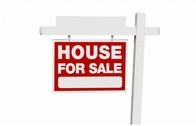Advertisement
Home Prices Increase 1.3 Percent in April

Data through April 2012, released by S&P Indices for its S&P/CaseShiller Home Price Indices showed that, on average, home prices increased 1.3 percent in the month of April for both the 10- and 20-City Composites. This comes after seven consecutive months of falling home prices as measured by both indices. April’s data indicate that, on an annual basis, home prices fell by 2.2 percent for the 10-City Composite and by 1.9 percent for the 20-City Composites, versus April 2011. While still negative, this is an improvement over the annual rates of -2.9 percent and -2.6 percent recorded for the month of March 2012. Both Composites and 18 of the 20 MSAs saw increases in annual returns in April compared to those published for March; only Detroit and New York fared worse in April, posting annual returns of +1.2 percent and -3.8 percent respectively, falling below their March returns of +3.9 percent and -3.0 percent. For the seventh consecutive month, Atlanta posted the only double-digit negative annual return at -17.0 percent, its 22nd
consecutive month of negative annual returns.
Ten of the 20 MSAs saw positive annual returns—Boston, Charlotte, Dallas, Denver, Detroit, Miami, Minneapolis, Phoenix, Tampa and Washington, D.C. No cities posted new lows in April 2012.
The chart above depicts the annual returns of the 10-City and the 20-City Composite Home Price Indices. In April 2012, both Composites were up by 1.3 percent in the month, resulting in annual returns of -2.2 percent and -1.9 percent, respectively.
“With April 2012 data, we finally saw some rising home prices,” says David M. Blitzer, chairman of the Index Committee at S&P Indices. “On a monthly basis, 19 of the 20 MSAs and both Composites rose in April over March. Detroit was the only city that saw prices fall, down 3.6 percent. In addition, 18 of the 20 MSAs and both Composites saw better annual rates of return. It has been a long time since we enjoyed such broadbased gains. While one month does not make a trend, particularly during seasonally strong buying months, the combination of rising positive monthly index levels and improving annual returns is a good sign. The 10-City and 20-City Composites each rose by 1.3 percent for the month and posted annual rates of return of -2.2 percent and -1.9 percent, compared to April 2011, better than the -2.9 percent and -2.6 percent annual rates seen in March 2012."
The chart above shows the index levels for the 10-City and 20-City Composite Indices. As of April 2012, average home prices across the United States are back to the levels where they were in early 2003 for the 20-City Composite and to mid-2003 levels for the 10-City Composite.
Measured from their June/July 2006 peaks through April 2012, the decline for both Composites is approximately 34 percent. Both Composites recently reached their index level lows in the current housing cycle in March 2012, down approximately 35 percent from their peaks. In April 2012, 19 of the 20 MSAs and both Composites posted positive monthly returns. Detroit was the only exception recording a monthly decline of 3.6 percent. Atlanta was the only city to post a double-digit negative annual rate of return; however it saw improvements in both monthly and annual rates versus what was published for March. Phoenix continues to lead those cities with improving trends, posting a 2.5 percent monthly increase in April, as well as the highest annual rate of return amongst all 20 cities at +8.6 percent. Atlanta, Cleveland, Detroit and Las Vegas continue to have average home prices below their January 2000 levels.
“We were hoping to see some improvement in April. First, changes in home prices are very seasonal, with the spring and early summer being the most active buying months," said Blitzer. "Second, while not as strong and we believe less reliable, the seasonally adjusted data were also largely positive, a possible sign that the increase in prices may be due to more than just the expected surge in spring sales. Additionally, the last few months have seen increased sales and housing starts amidst a lot of talk of better housing markets, so some price gains were anticipated."
About the author





